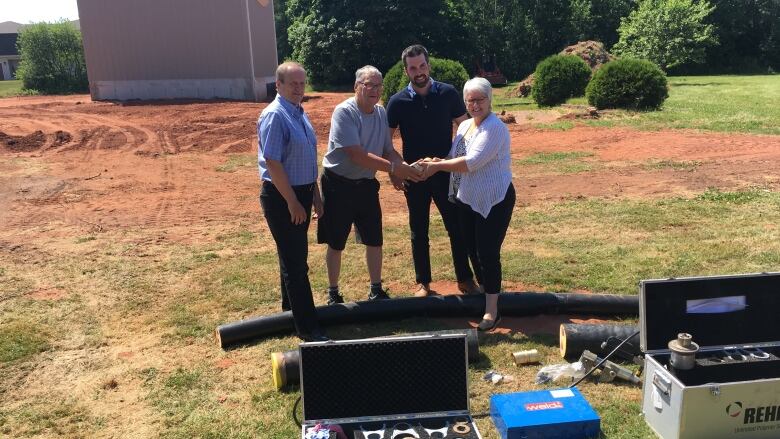Tignish reducing carbon footprint with $1.1M heating project
10 mid-sized buildings in town switching from oil to a shared wood-chip boiler

A $1.1-million heating project in Tignishis scheduled to have 10 mid-sizedbuildings in the P.E.I. town switched over from oil to a central wood-chipboiler plant in time for the cold weather.
Bill Drost, owner of Bay Winds Consulting and the project manager for TignishInitiatives, said the project, which is already well under construction, should benefit its customers, the community and the environment.
"Wood chips are considered a carbon-neutral fuel since replacement trees are grown, which take carbon dioxide out of the atmosphere, so for the environment we're actually reducing P.E.I.'s carbon footprint by about 500 tonnes of carbon dioxide every year," Drosttold CBC News.
The buildings being switched over under the TignishDistrict Heating Project includeseniors homes, an elementary school, a post office, a provincial sign shop and a retail building.
Federal and provincial funding
Tignish residents were invited to a public meeting Friday afternoon to see the site and learn more about the plans.
Drost said the project was funded in part by thefederal and provincial governments, and he believes it willhave a positive economic impact on all involved.
Customers won't need to operate boilers or furnaces in their own buildings, and when the price of oil rebounds or the federally mandated carbon tax comes into effect they'll be price-protected.
Meanwhile, the town should benefit from an increased tax base and benefits for the local trucking and lumber industries, he said.All the wood will be locally sourced, in contrast to oil which must come from elsewhere.
For Tignish Initiatives, an economic development organization with a volunteer board, it's a long-term payback project thatprovides them with financial stability, Drost said.
"The benefits go all around," he said.
- MORE P.E.I. NEWS |Cornwall residents concerned about Lakeview Drive townhouse proposal
- MORE P.E.I. NEWS |Historic voyage: Island students to paddle voyageur canoes on the St. John River
With files from Katerina Georgieva












_(720p).jpg)


 OFFICIAL HD MUSIC VIDEO.jpg)
.jpg)



























































































